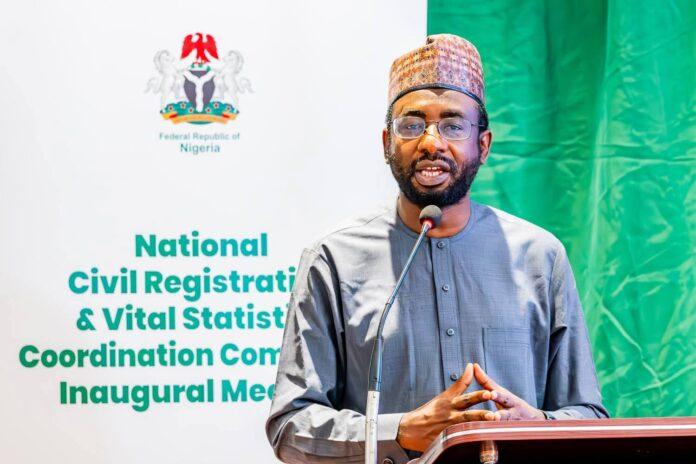In what could reshape how Nigeria plans, governs, and delivers services to its citizens, digital identity is no longer just a buzzword, it’s becoming the backbone of national progress.
And surprisingly, it all starts with something as basic as a birth certificate.
At the inaugural meeting of the National Civil Registration and Vital Statistics (CRVS) Co-ordination Committee held at the Abuja Continental Hotel, the Director General of the National Information Technology Development Agency (NITDA), Kashifu Inuwa, made a bold declaration: “Digital identity and data integration are not optional, they’re foundational to inclusive governance.”
What’s the big deal about CRVS? More than just records of births, deaths, and marriages, CRVS is Nigeria’s hidden treasure trove of untapped planning power.
Without it, millions remain invisible in the eyes of government systems, lacking legal identity, and access to services, and making it nearly impossible for policymakers to plan effectively.
Inuwa’s message was crystal clear: It’s time to stitch the broken pieces of Nigeria’s fragmented data systems together and tech is the thread.
“From registering people at birth to linking that information to national budgeting and planning, can help us make smarter decisions for everyone,” he said.
NITDA isn’t going solo. In a major stakeholder convergence, the agency is teaming up with heavyweights like the National Population Commission (NPC), the National Identity Management Commission (NIMC), and the National Bureau of Statistics (NBS) to push forward the digital transformation of CRVS.
This alliance isn’t just about systems, it’s about visibility, equity, and access for every Nigerian.
The reform also directly aligns with the Renewed Hope Agenda of President Bola Ahmed Tinubu, which prioritises building digital public infrastructure, improving service delivery, and enabling data-driven governance.
“Digital is a lifestyle now. Nobody wants to fill forms or go from office to office. Everything must be seamless, secure, and smart,” Inuwa said.
And he’s not wrong. In a country where bureaucracy often frustrates access to even basic services, a unified digital identity system could be the game-changer Nigeria desperately needs.
NITDA has committed to providing technical standards and digital advisory support to make the transformation smooth and citizen-centric. The goal is a connected, digital Nigeria where every citizen counts, literally.
With key figures in attendance including the heads of NPC, NIMC, NBS, and legislative leaders, this movement toward digital identity integration is no longer a futuristic fantasy. It’s happening now, and it’s about time.


























